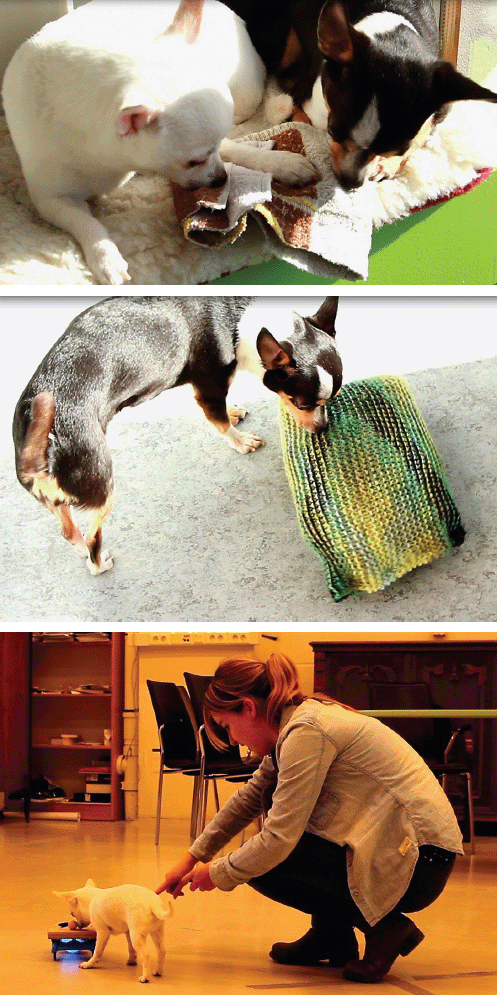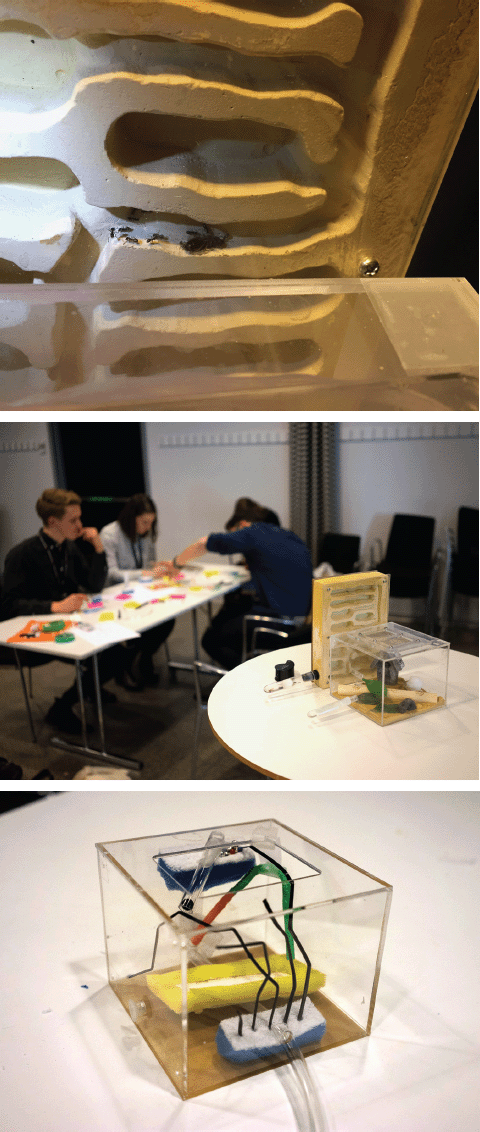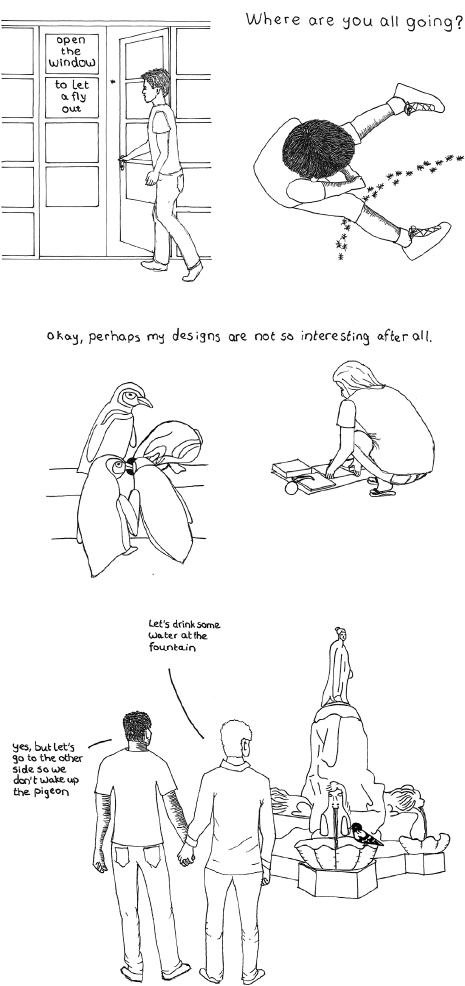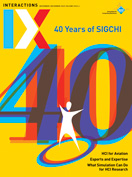Authors:
Michelle Westerlaken

Speciesism—the oppression of other animals—is often completely normalized within human societies. This makes it challenging to imagine design work that can encourage more-detailed multispecies interactions between humans and the animals with whom we share our lives. Over the past decade, I have worked toward a design program that seeks to identify openings through which multispecies worlds can be negotiated more relationally [1]. Such openings aim to create multispecies worlds filled with multiplicities, uncertainties, and an ongoing reinvention of how to live with other animals. This visual essay outlines three interrelated themes that often surface in such experimental encounters with other animals: playfulness, participation, and interruption.
No matter what kind of enclosure they inhabited, the ants found a way out to roam around the office.
These design experiments in multispecies worlding, as an ongoing search toward new ways of relating to and living with other animals, rarely completely escape speciesism, but they do contribute to unmaking the status quo with renewed proposals created with the animals involved.
 | Playfulness. Many different animals are playful in ways that overlap with humans. This not only includes playing as an activity in itself but also involves other activities such as playful exploration, curiosity, affection, shared humor, and challenging one another into responding. While living with two dogs, Jojo and Boogie, I documented several projects in which we developed new playful artifacts together. These included robotic toys and interactive installations that emerged through a slow prototyping process. These three images show a project in which we worked with different smells that the dogs showed interest in and reworked these into different playful artifacts. In these projects, playfulness involved different responses that I tried to sustain and develop through the design process. |
 | Participation. In a six-month project, I followed the everyday lives of a colony of black garden ants that lived in a university office. No matter what kind of enclosure they inhabited, the ants found a way out to roam around the office. These events inspired a game jam, where 15 interaction/game designers developed escape rooms that could potentially be interesting for the ants. One of the prototypes included an obstacle course with zip ties, sponges, tubes, straws, and a seesaw that some of the ants later explored, more or less as envisioned by the designers. In this project, it was precisely the ants' participation through unexpected and surprising responses that provoked a change in our relationships with them and helped us reimagine how we could live with ants differently. |
 | Interruption. These design experiments, part of a larger orientation toward multispecies worlding in scholarship and everyday life, encouraged me and other people following these works to recognize animal encounters in everyday life that present multispecies worlds. To document these everyday encounters, I experimented with different media and found that simple, hand-drawn line illustrations with short annotations work well to capture these often-fleeting moments. The illustrations show how other animals propose worlds differently and can interrupt human interactions. The four annotated illustrations shown exemplify a larger, ongoing collection. |
 References
References
1. Westerlaken, M. Imagining Multispecies Worlds. Doctoral dissertation, Malmö University, 2020; http://urn.kb.se/resolve?urn=urn:nbn:se:mau:diva-17424
 Author
Author
Michelle Westerlaken is a postdoctoral researcher at the University of Cambridge with a Ph.D. in interaction design from Malmö University. Her work builds on science and technology studies and participatory design methods to investigate possibilities for humans and other species toward more relational—multispecies—ways of living on this planet. [email protected]

Copyright held by author
The Digital Library is published by the Association for Computing Machinery. Copyright © 2022 ACM, Inc.











Post Comment
No Comments Found